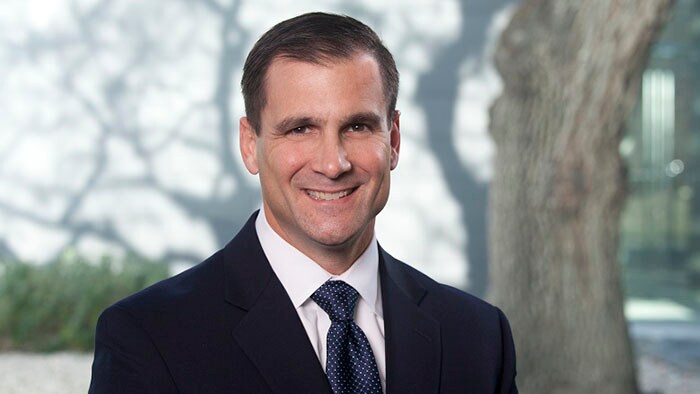Health
Philips Invests $150 Million in U.S. Manufacturing for Health Care

Philips North America has announced a significant investment of $150 million in U.S. manufacturing, research, and development. This initiative includes expanding its facility in Reedsville, Pennsylvania, which specializes in AI-enabled ultrasound systems. The move reflects a broader trend towards localizing healthcare manufacturing, a response to challenges faced during the COVID-19 pandemic and ongoing supply chain disruptions.
In a recent conversation, Jeff DiLullo, CEO of Philips North America, discussed the implications of this investment for the healthcare industry. He emphasized that the decision was influenced by the need for more localized sourcing, a necessity highlighted by the pandemic. “We realized that we needed to be much more local in our sourcing,” DiLullo said. This strategic shift aims to build a more resilient supply chain capable of meeting the growing demands of the U.S. healthcare market.
Addressing Workforce Challenges
The healthcare sector in the United States is experiencing significant workforce challenges. According to the National Center for Health Workforce Analysis (NCHWA), the industry employed approximately 17 million workers in 2023, making it the largest employment sector in the country. However, predictions indicate a shortage of 187,130 full-time equivalent physicians by 2037, with rural areas likely to be disproportionately affected.
DiLullo highlighted that while increasing manufacturing capabilities is crucial, it is equally vital to address the systemic issues contributing to workforce shortages. The corporatization of healthcare, which has led to increased administrative burdens and burnout among physicians, remains a pressing concern. Dr. Harry Severance from Duke University School of Medicine noted that physicians are leaving the profession due to a perceived lack of respect and autonomy.
The Impact of Policy on Healthcare Manufacturing
The push for U.S. manufacturing aligns with current political trends aimed at reshaping trade and industry policies. The previous administration under Donald Trump significantly influenced these changes by implementing tariffs and promoting an “America First” agenda. DiLullo acknowledged that while tariffs can create challenges, they also incentivize companies to invest domestically.
Philips’ decision to expand its manufacturing footprint in the U.S. is not merely a response to tariffs but also a strategic move to capitalize on the growing healthcare market, which is expanding faster than the rate of inflation. “The U.S. health care market is growing, and we want to be at the forefront of that growth,” DiLullo stated.
He also mentioned that the current administration has reduced regulatory hurdles, facilitating Philips’ ability to expand its operations. “We managed to get our facility up and running in six months, under budget and ahead of schedule,” he explained. This accomplishment demonstrates how collaboration with local officials and streamlined processes can enhance operational efficiency.
As healthcare systems adapt to rising costs and increased demand, the need for innovative solutions is paramount. Philips is utilizing advancements in artificial intelligence and automation to improve efficiency, thereby managing costs while maintaining high-quality standards. DiLullo noted that about 50 percent of the software development at Philips now involves AI, which helps streamline operations and reduce expenses.
The shift towards domestic manufacturing not only addresses logistical challenges but also enhances the speed at which life-saving technologies can be delivered to healthcare providers. DiLullo emphasized that “getting lifesaving capability in the hands of healthcare providers much sooner” will ultimately lead to better patient outcomes.
The conversation also touched on the implications of these changes for healthcare professionals. With increasing automation and digital tools, there is potential for healthcare workers to focus on more complex tasks, thus improving job satisfaction and reducing burnout.
As the healthcare landscape continues to evolve, the partnership between private sector initiatives and government policies will play a crucial role in shaping the future of healthcare manufacturing in the United States. Philips’ $150 million investment is a testament to the potential for innovation and improvement in an industry that is at a critical crossroads.
-

 Technology4 months ago
Technology4 months agoDiscover the Top 10 Calorie Counting Apps of 2025
-

 Health2 months ago
Health2 months agoBella Hadid Shares Health Update After Treatment for Lyme Disease
-

 Health3 months ago
Health3 months agoErin Bates Shares Recovery Update Following Sepsis Complications
-

 Technology3 weeks ago
Technology3 weeks agoDiscover 2025’s Top GPUs for Exceptional 4K Gaming Performance
-

 Technology2 months ago
Technology2 months agoElectric Moto Influencer Surronster Arrested in Tijuana
-

 Technology4 months ago
Technology4 months agoDiscover How to Reverse Image Search Using ChatGPT Effortlessly
-

 Technology4 months ago
Technology4 months agoMeta Initiates $60B AI Data Center Expansion, Starting in Ohio
-

 Technology4 months ago
Technology4 months agoRecovering a Suspended TikTok Account: A Step-by-Step Guide
-

 Health4 months ago
Health4 months agoTested: Rab Firewall Mountain Jacket Survives Harsh Conditions
-

 Lifestyle4 months ago
Lifestyle4 months agoBelton Family Reunites After Daughter Survives Hill Country Floods
-

 Technology3 months ago
Technology3 months agoUncovering the Top Five Most Challenging Motorcycles to Ride
-

 Technology4 weeks ago
Technology4 weeks agoDiscover the Best Wireless Earbuds for Every Lifestyle





















